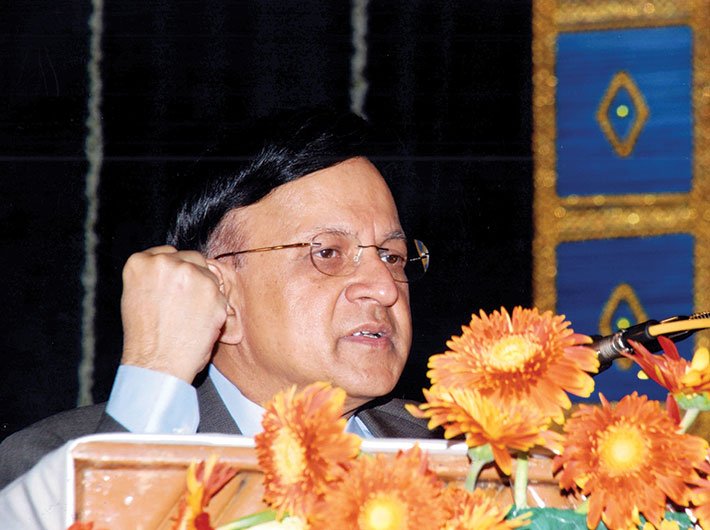What is the role of CVC in curbing corruption and black money?
Unlike many things in life, corruption is not episodic. It is not possible to talk of a completely corruption-free society. Corruption is an aspect of human nature which needs to be controlled and tackled. In India, corruption stems from various sources like systemic corruption – certain departments’ revenue, police, food supply and land administration, which are traditionally prone to corruption. In order to tackle the problem, start with system reforms. As the CVC chairperson I recommended leveraging information technology, cutting down personal interactions and making all information available on the website.
The commission should focus on three components of vigilance – punitive, deterrence and preventive. It is not the enormity of the punishment but certainty of punishment which acts as a deterrence. A large number of cases pending in vigilance courts are also responsible for blunting the effect of deterrence. All this results in the corrupt not getting punished within a time frame. If we do not focus on these corrupt officials and let them go, it will have no deterrence on others. It will discourage honest and clean public servants. In such circumstances preventive vigilance is the most effective way of tackling corruption. It creates an atmosphere making it difficult to indulge in corruption. I always emphasise on changes which enable prevention of corruption. If possible, strengthen the CBI and other enforcement agencies.
Corruption needs a multi-pronged attack. First, make an example of those facing charges in ongoing cases. Make it possible for people to make money in legitimate ways and be successful financially. This would greatly reduce the need for short-circuiting and paying speed money in the government. There should be an ease of doing business in order to tackle corruption in government departments.
Do you think that CVC’s restrictive mandate makes it difficult to attack the corrupt?
The CVC is a recommendatory body, which puts a lot of limitations. Although we send recommendations to the government, it is up to them to agree or disagree. I won’t say the government record is poor with respect to following CVC’s recommendations. But a lot of delay takes place.
Most problems faced by an average citizen belong to the realm of state governments. The CVC has no jurisdiction over the states. Since citizens face corruption at the level where they receive various services from the government, effective means of tackling this corruption have to be found at the level of state governments.
Making the recommendation of CVC mandatory has several implications like what happens in the employer-employee relationship within the government.
There are nuances which have to be considered. But there is no doubt that steps must be taken to ensure that within a given time frame, the recommendations of the CVC are considered at the highest level in the government. There should not be delays.
How do then CVC create accountability in the bureaucracy?
Enforcing accountability is always a problem. It is because a public servant’s role and responsibilities are not clearly defined. If roles are vague, how can we expect to enforce accountability? It creates a passage for escape. Nature of corruption is different in white-collar jobs. Based on documents, we have to make examination and collect relevant information. It is a laborious process. Most of the white-collar corruption is well concealed. So, you have to read between the lines. At the same time you have to be extremely careful because you are dealing with the reputation of the department and the officer concerned.
Considering the kind of demands which are made on CVC, the commission is still not adequately manned by right kind of people. Vigilance is not an attractive carrier option. There is general reluctance to come to vigilance organisation. Generally, chief vigilance officers (CVOs) in the ministries and departments are of the rank of joint secretary. They are thus part-time CVOs. Only railway, excise and customs, and income-tax departments have full time CVOs. Even defence has a part-time CVO. Above all, maintaining integrity in the government setup cannot be outsourced. It is the responsibility of the departmental secretaries and the heads of the department to ensure that integrity is maintained at all levels in government and they must be held accountable if large-scale corruption is found in their jurisdiction.
The multi-pronged attack therefore must consist of administrative reforms, enforcing accountability and by strengthening institutions like CVC, CBI and the vigilance wing of various departments.
Why has CVC failed to keep an eye on departments like enforcement directorate, customs, central excise and income tax, which have a larger role in exposing the corrupt?
We have had a limited success in tackling corruption in revenue and works department because of the sheer size of these organisations. We will have to strengthen the office of CVO and also, if possible, bring CVO from outside. If a CVO belongs to the same setup, it is difficult to have an investigation in a non-partisan way. In case of taxation departments, reduce the paper work to minimum and bring about systemic improvements. Make a drastic change in rules and procedures, which will make CVC’s task easier.
When CVC investigates a big scam, like you did in your tenure, what kind of challenges does a commissioner face?
When I was inquiring into these scams, I never experienced anyone in the government either telling me to go slow or in any manner to interfere with the investigation. I never had any problem in starting any inquiry or asking for an investigation. This is also because commission is completely independent of the government.
Can CVC continue to work like before with the advent of the Lokpal?
Even after the passage of the Lokpal Bill, the powers of CVC with respect to certain categories of civil servants are intact. There is a risk that there can be duality of control in respect of these civil servants and there can be problems related to the overlapping of responsibilities between Lokpal and CVC. During my tenure, I used to examine roughly 800 files a month. I wonder what an enormous responsibility is being entrusted to Lokpal! They will have to cope with sheer numbers.
Is CVC in dire need of more powers?
For a powerful commission, giving powers is not the only solution. The best possible solutions are selecting the best people, adequate manpower and bringing systemic changes in the government in order to achieve deterrence.
(The interview appears in the July 1-15, 2017 issue of Governance Now)

